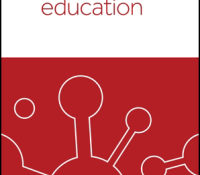eric.ed.gov har udgivet: The current study explored the effects of two teaching styles, authoritative and authoritarian, on students’ mathematics motivation. The two motivational constructs examined were intrinsic and extrinsic motivation. Data were collected from 425 Omani 8th grade students (males = 202/females = 223, mean age = 13.44, SD = 0.79). Through two questionnaires, students reported their perceptions of their math teachers’ teaching styles, and their own motivational orientation towards mathematics. Multiple regression models were used to analyze the data. The findings suggest the two teaching styles play a role in predicting students’ mathematics motivation. An authoritative teaching style seems to be the better predictor of the two motivational constructs, when compared with an authoritarian style. Eighteen percent of the variance was accounted for in the intrinsic motivation model, compared… Continue Reading →
Like this:
Like Loading...
tandfonline.com har udgivet en rapport under søgningen “Teacher Education Mathematics”: Abstract Abstract The purpose of the present study was to investigate the relationship between EFL personality types, their learning style, and their reading fluency. To this end, 130 male and female intermediate EFL learners were selected from three institutes. They were asked to fill in two questionnaires including a Holland’s questionnaire of personality types and Reid’s Perceptual Learning Style Preference (PLSP) Survey. Moreover, they were asked to read a reading section of Active Skills for Reading to measure their reading fluency. Pearson coefficient of correlation was employed to answer the first and second research questions and a multiple regression analysis was run after checking the preliminary assumptions. The results of the study indicated that there is a significant relationship between… Continue Reading →
Like this:
Like Loading...
eric.ed.gov har udgivet: This study was conducted to analyse the influence of learning styles and teaching strategies on academic performance in mathematics. Surveys were conducted to 277 randomly selected grade 9 students and five purposively sample mathematics teachers. Findings reveal that most of the student-respondents have a combination of dependent, collaborative and independent learning styles. Multiple regression analysis indicates that among the learning styles, only the independent style has a significant influence on the academic performance of grade 9 students. Four teaching strategies including cooperative learning, deductive approach, inductive approach, and integrative approach, were found to have a significant influence on academic performance. By understanding the learning styles of students, teachers will be guided in designing different strategies to help students enhance learning for their improved performance in mathematics. Link… Continue Reading →
Like this:
Like Loading...
tandfonline.com har udgivet en rapport under søgningen “Teacher Education Mathematics”: Abstract Formulae display:?Mathematical formulae have been encoded as MathML and are displayed in this HTML version using MathJax in order to improve their display. Uncheck the box to turn MathJax off. This feature requires Javascript. Click on a formula to zoom. Abstract The purpose of this study was to examine fifth graders’ mathematical reasoning and spatial ability, to identify a correlation with their learning styles, and to determine the predictive power of their learning styles on their mathematical learning profiles. This causal study was conducted with 97 fifth graders (60 females, 61.9% and 37 males, 38.1%). The data were collected using three instruments: the Test on Learning Styles, the Mathematical Reasoning Test, and the Spatial Ability Test. Considering the combined… Continue Reading →
Like this:
Like Loading...

